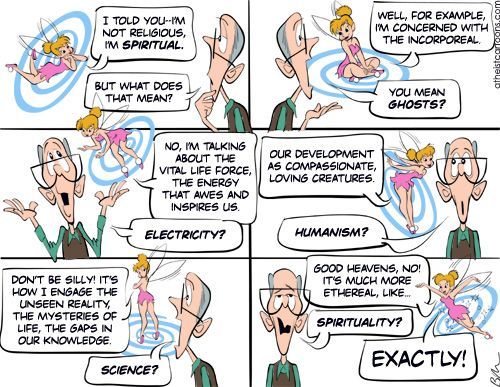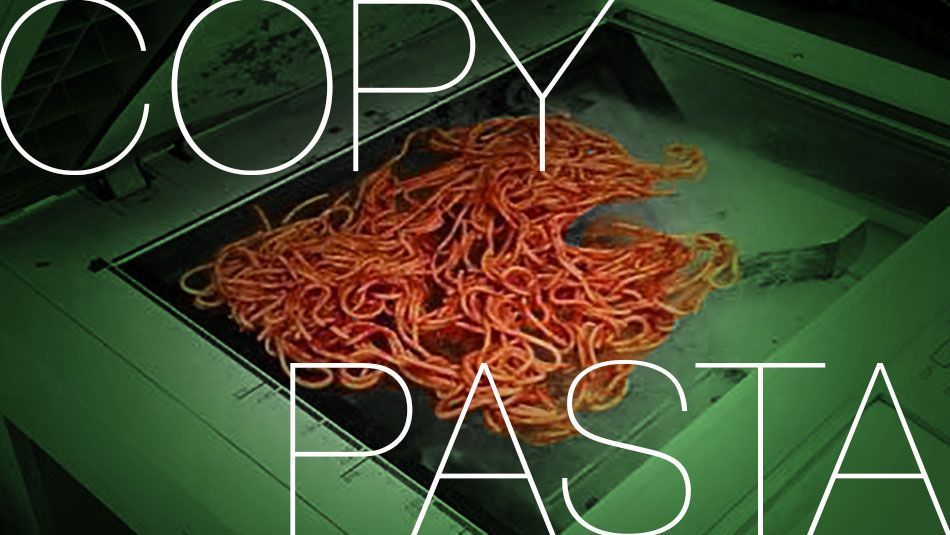How Not To Use Scientific References[1]
As you may I have noticed, I rarely use scientific citations for my articles. It is not that I am anti-science. Quite the contrary. I respect the scientific method way too much to just throw it around in order to support my generic rumblings. Nonetheless, this doesn't stop smart-asses responding to the comment section with "scientific references" in a desperate attempt to make a point.
Another reason I do not use scientific references is simply because there are two (or more) issues for every topic. If you only find evidence pro or against your argument then most likely your claim is poorly researched and even more likely, bullshit. Sure, you can reference a study that supports your claim but I can reference another that contradicts it.
source
Neither my posts or yours are headed for dissertations or to get access to grant funding. I write posts to express ideas that are fundamentally based on critical thinking — immune to scientific citations. They can easily trash any copy-pasta link from a hasty google search because I don't target specific facts but rather anthropological expressions based on assumptions about how the world works. If your argument is based on scientific evidence then it is headed for butchering on my wall.
Without further adieu let's take some recent examples you can witness yourself. I posted an article a few days ago stating that Spiritual Drugs Are Bullshit. Hippies from around the platform gathered around and showered me with irrelevant research about how spirituals drugs help people to make connections, heal from depression and anxiety, inspire to create — you get the sentiment.
Thing is, all these findings are irrelevant since the post was about the spiritual claims these drugs supposedly induce. In order to avoid getting into misunderstandings here is the best definition I have found for this nonsensical word (spirituality) on wikipedia:

Traditionally, spirituality refers to a religious process of re-formation which "aims to recover the original shape of man," oriented at "the image of God" as exemplified by the founders and sacred texts of the religions of the world. In modern times the emphasis is on subjective experience of a sacred dimension[1] and the "deepest values and meanings by which people live,"[2][3] often in a context separate from organized religious institutions.[4] Modern spirituality typically includes a belief in a supernatural (beyond the known and observable) realm,[5] personal growth,[6] a quest for an ultimate/sacred meaning,[7] religious experience,[8] or an encounter with one's own "inner dimension."[9]
And here is a take down of this bogus word from a rational point of view:
source
I other words is some kind of religion 2.0. Modern generations like to think that they have escaped the crutches of religion and thus they are more "enlightened" but in reality they are in the same dark ignorant pit as before. The audacity to post scientific research about such word confirms further their own ignorance.
If you "scientific evidence" attempts to support a conglomerate of heresies that nobody agrees but everybody "vibes" then your argument will be dismantled in seconds. This is the reason that presenting any amount of "research" about generic positive effects about a vague X is non-sensical and useless.
Make sure also that your claims cannot be used for practically everything else around us. For example the same kind of "spiritual" claims about human connection, creativity, inspiration and relevant buzz words can be made for all substances including the one with the most bad rep — alcohol. Doubt it? Here, let me use my awesome google skills:
Alcohol can help you remember
How drinking makes you more creative
Drinking Alchohol can protect you from mental health
Our Ancestors were drinking alcohol before they were human
Beer makes people happier, maybe even sexier
I could google another 5 pieces of research articles to debunk all the above. The point though is that no amount of research can debunk the "spiritual nature" of alcohol because "spirituality" is bullshit to begin with.

source
Another example that I happen to stumble upon recently is the documentary "What The Health". The guy presenting it does an awesome job in finding scientific research but he has no idea how to employ critical thinking — probably because he just wants to reaffirm his own biases. So he ends up shooting himself on the foot.
For half the duration of the documentary he is trying to convince people that meat causes cancer without bothering to pay attention to simple facts. E.g the amount of servings of meat, the kind of meat or the fact that the research he so awfully summons talks about processed meat and not any kind of meat.
I have seen the the same claims made in here from our top "open-minded" celebrity that supports the ideas of this documentary. He just happened to recently give up one "spiritual" substance (alcohol) to pick up on yet another (Ayahuasca). Sure the drug "class" is different but the end result of the effects he claims are exactly the same as with alcohol. You feel good, able to connect with the world, see things "differently — the whole "spiritual" shebang. Moreover, since bullshit travels in packs, he references this documentary as they basis for his spiritual choice. He is not the only one. Most new age westerners follow the same Tinfoil squared path thinking that they somehow discovered the truth .
"What the Health" tries to argue that meat is bad and that sugar is good. It order to do that he uses a nauseating amount of confirmation biases and quote mining from doctors that make bank from bullshit books that support an alternative point of view that is not based on science. For example the documentary spends quite some time demonizing eggs and meat for containing high levels of cholesterol when it has been repeatedly demonstrated that diet cholesterol is not associated with coronary artery disease (and no there is no contrary research to this). More or less he is overgeneralizing, trying to convince people that there is the same magic answer for everyone when each of us carries a different physiology. I am not going to continue debunking the entire documentary. You can watch this doctor do it here.
Do not use scientific references to make an argument pro or against something without first researching the entire context about the claim you are trying to support. Instead, try to tackle the issue from a critical point of view. Most of the time the people that use research as evidence have no idea how to argue properly or know how to debate the issue at hand. Amassing copy-pasta links cannot make any point other than probably re-affirm false perceptions. If you do it on my wall remember: You have the right to post any amount of research you like, relevant or irrelevant to the topic — but — it will be used against you.

How did you mess up copying a previous steem post so badly? You managed to mess up half the images.
https://steemit.com/science/@kyriacos/how-not-to-use-scientific-references
Congratulations @bloontrigger! You have received a personal award!
Click on the badge to view your Board of Honor.
Do not miss the last post from @steemitboard:
SteemitBoard World Cup Contest - The semi-finals are coming. Be ready!
Participate in the SteemitBoard World Cup Contest!
Collect World Cup badges and win free SBD
Support the Gold Sponsors of the contest: @good-karma and @lukestokes
Congratulations @bloontrigger! You received a personal award!
You can view your badges on your Steem Board and compare to others on the Steem Ranking
Vote for @Steemitboard as a witness to get one more award and increased upvotes!